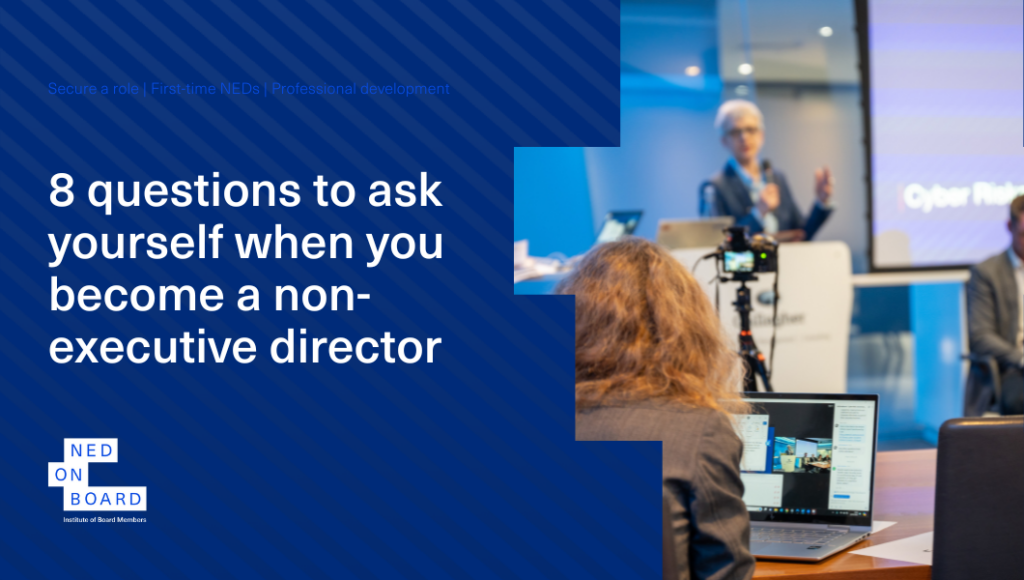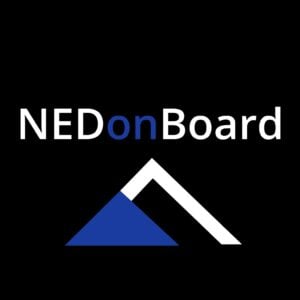The article discusses background information that any professionals looking to join a board as a non-executive director should know prior to kick starting their search for positions.
What is a non-executive director?
In the UK where a unitary board structure prevails, non-executive directors serve on boards alongside executive directors. Unlike executive directors, they have no daily management or operational responsibilities within the business. But, like executive directors, under the Companies Act 2006, they are regarded as “officers” of the company. This means that company law recognises no distinction between executive and non-executive directors.
For more on the differences and similarities between exec vs. non-execs, please click here.
What is the role of a non-executive director?
Effective non-executive directors play a crucial role as sounding boards for the senior leadership team. They offer objective and independent insights, through constructive challenges, thoughtful questions and strategic guidance.
Boards reach their full potential when they are composed of non-executive directors with complementary skills and expertise from diverse roles, sectors, and experiences. This diversity adds depth to the board’s capabilities.
The perspectives of NEDs selected for their diverse experience and expertise, complemented with professional qualifications enrich boardroom debates and discussions. They help the organisation stay adaptable, forward-thinking and prepared to navigate complex challenges.
What makes a non-executive director effective and sought after?
A successful non-executive director embodies a blend of essential attributes, technical skills, and interpersonal qualities that collectively enhance board effectiveness.
Effective NEDs are:
- independent thinkers with sound judgment,
- able to evaluate complex issues objectively,
- challenge constructively.
As such, they typically have strong communication skills, emotional intelligence, and an ability to build credibility and rapport.
On the technical side, without the need to be a technical expert, effective NEDs possess:
- financial literacy,
- governance knowledge,
- strategic and commercial acumen.
This enables them to interpret reports, understand regulatory obligations, and contribute to strategic discussions.
Adaptability and a continuous learning mindset ensure NEDs remain responsive to industry trends and emerging challenges.
What contributions do generalists vs. specialists bring to boards?
NEDs may be appointed because of their broad, versatile skill sets and diverse experience across multiple industries or functions. We call them generalists.
Specialists in the boardroom are directors with deep, focused expertise in specific areas such as finance, technology, risk management, or legal compliance. They bring in-depth knowledge and technical skills that are essential for informed decision-making on complex issues within their domains.
Boards benefit from a balanced mix of generalists and specialists. Generalists bring broad perspectives, allowing them to connect dots, consider big-picture strategy, and adapt to shifting dynamics.
Specialists contribute deep expertise in areas like finance, technology, or risk management, offering targeted insights that are critical for informed decision-making.
Generalists and specialists create a dynamic board composition that is both strategically agile and technically sound.
8 questions to ask yourself before becoming a NED
To help you gauge your preparedness, recognise areas for development and ensure the role aligns with your professional aspirations, here are 8 questions to ask yourself:
1️⃣ What unique strengths do I bring to the table? Reflect on the specific (soft and technical) skills, experiences, and perspectives you offer a board, including your ability to provide unique insights.
2️⃣ Am I recognised and respected as board-ready? Consider if your qualifications and reputation in the field demonstrate that you are fully prepared to step into a NED role.
3️⃣ How will I identify the right board opportunity? Finding the ideal fit can take time and patience; be prepared for a thorough search process.
4️⃣ Do I have the time and commitment needed? Examine the role’s requirements to ensure you can dedicate the necessary hours.
5️⃣ Where can I add unique and differentiated value? Assess how your skills and experience can complement the board’s composition.
6️⃣ Have I completed any relevant board training? Being well-prepared through professional training or courses strengthens your knowledge and confidence and ability to stand out.
7️⃣ Will I learn and grow in this role? A successful NED is intellectually curious and open to learning, so ensure the role offers developmental opportunities.
8️⃣ Is my employer supportive of my NED goals? Communicate with your manager or CEO about how a NED role can also enhance your contributions in your current role and position you with a promotion.
To find out more about non-executive director training, please visit our non-executive director training page:
If you are new to the NED role, please visit our dedicated page and take the NED-ready quiz to assess your preparedness for roles!




